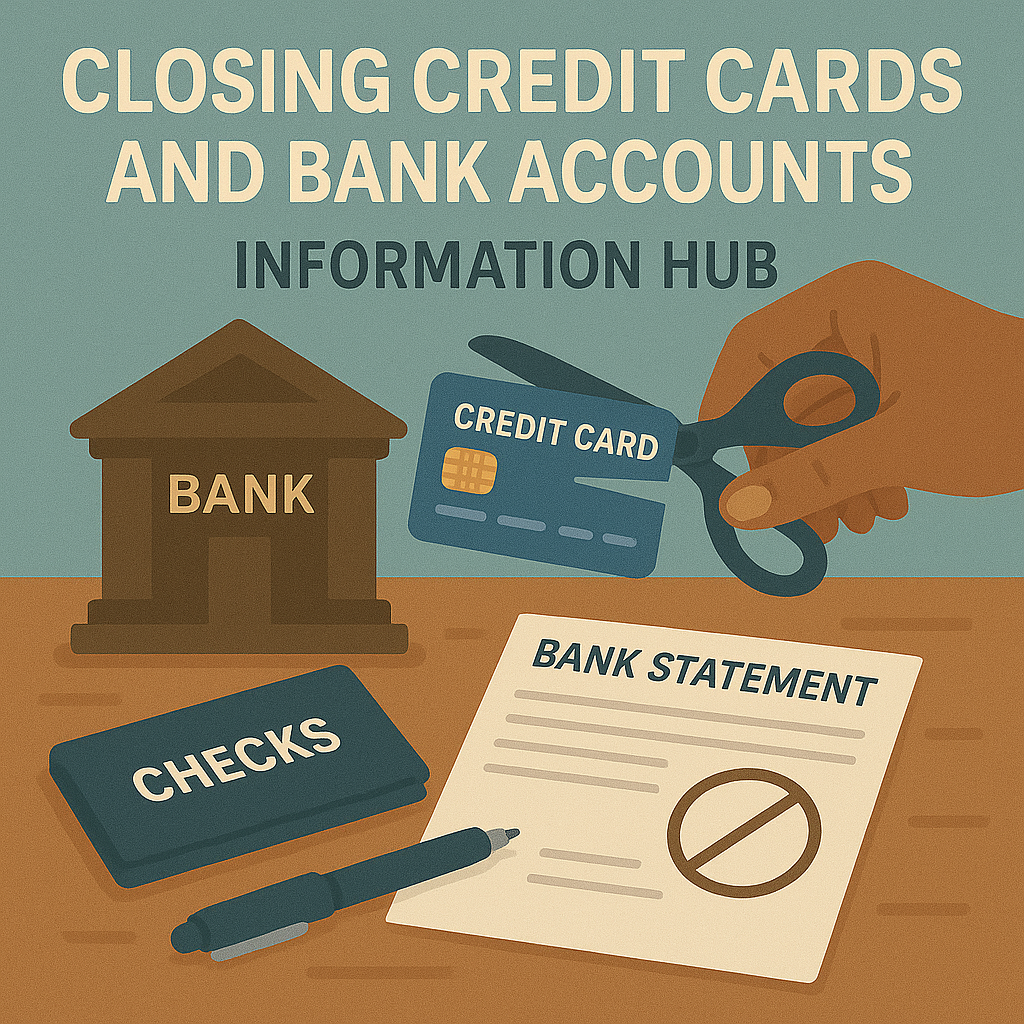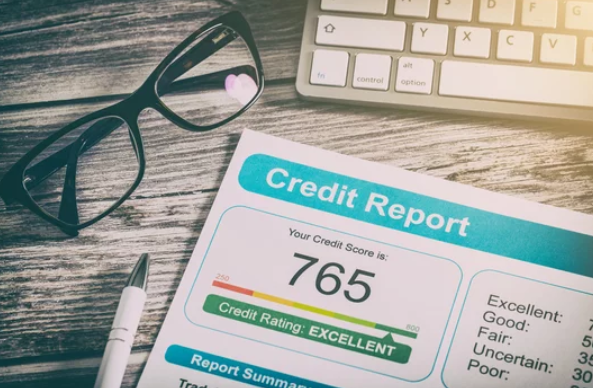Financial accounts don’t close themselves.
The How To Close Credit Cards And Bank Accounts Information Hub
When someone dies, their bank accounts and credit cards need to be closed properly to protect the estate and prevent fraud. This guide walks you through how to notify institutions, what documents you’ll need, what happens to credit card rewards and debts, and how to handle joint or shared accounts. Whether you’re an executor or surviving family member, this hub helps you take care of business while staying organized and within the law.

Key Things To Know
Closing financial accounts is a legal responsibility that protects the estate. It also ensures no one uses the accounts improperly and that assets are correctly distributed.
- You cannot use the deceased’s accounts after death: Once the bank or credit card company learns of the death, they will freeze or close the account. Using the accounts—even to pay bills—before they are legally transferred can be considered fraud.
- Joint accounts follow different rules: If you were listed as a joint account holder (not just an authorized user), you may still have access. That includes joint checking accounts or jointly held credit cards. Ownership and responsibility continue with the surviving holder in most cases.
- Authorized users are not responsible for the debt: If you were an authorized user on the deceased’s credit card, you are not responsible for paying the remaining balance. Only the estate—or a co-signer—is liable.
- Credit card rewards may be lost or transferable: Some issuers cancel unused rewards at death, but others allow them to be transferred to a surviving spouse or redeemed by the estate. Contact each card issuer to ask about their policy.
- Bank account balances become part of the estate: Unless an account has a payable-on-death (POD) designation or joint owner, the funds must go through probate and be distributed according to the will or state law.
- Credit card rewards may still have value: Some credit card issuers allow points or miles to be transferred or redeemed by the estate or a surviving spouse. Others automatically cancel them at death. Always ask about reward policies before closing the account.
How to Close Credit Cards and Bank Accounts
Here’s a step-by-step process to help you close financial accounts the right way.
Step 1. Collect necessary documents
You’ll need:
- A certified copy of the death certificate
- Legal documentation (Letters Testamentary or Letters of Administration)
- Your government-issued ID
- The account numbers for each financial institution
Step 2. Make a list of all accounts
Look for checking, savings, credit cards, and online-only financial services. Check the mail, email, and the deceased’s phone for account alerts and app access.
Step 3. Contact the banks and credit card issuers
Call customer service or visit a branch to report the death. Ask for their official procedure for account closure or name removal. Our Account Closure Information Hub can help with contact information and company specific procedures.
Step 4. Ask about balances, rewards, and debt
- For bank accounts: Ask about remaining balances and whether a POD beneficiary was listed.
- For credit cards: Ask if there are outstanding charges, who is responsible, and what happens to rewards or points.
Step 5. Follow their process for closure or transfer
Some institutions may require you to mail documents or appear in person. Joint accounts may remain open or be renamed. Credit cards will usually be closed unless there is a co-signer.
Step 6. Record everything for the estate file
Keep a list of the institutions you contacted, who you spoke with, what was said, and when the account was closed. Save all letters and statements in the CLEAR Kit or your estate binder.
Articles
Frequently Asked Questions
Closing financial accounts after a death often raises questions about debt, access, and what happens to rewards or shared accounts. These answers can help clarify what to expect.
Disclaimer: The information provided on this website and by Buried in Work is for general informational purposes only and should not be considered legal advice. Please consult with a qualified attorney or subject matter expert for advice specific to your situation.

